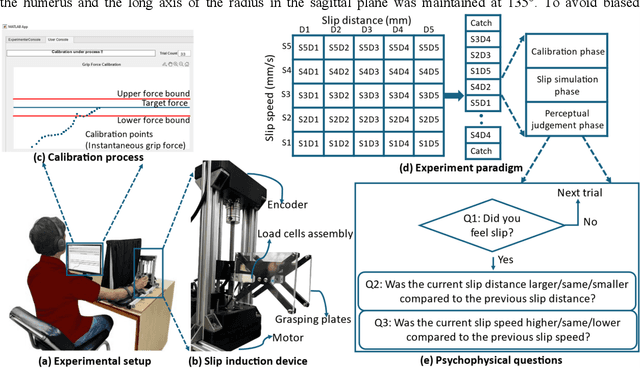Direction of slip modulates the perception of slip distance and slip speed
Paper and Code
Mar 08, 2024



Purpose: The purpose of this study was to investigate the psychophysical understanding of the slip stimulus. We emphasized that the perception of slip and its characteristics, such as slip distance and slip speed depend on the interaction between slip direction, slip distance as well as slip speed. Methods: We developed a novel slip induction device to simulate the artificial sense of slip. We conducted a psychophysical experiment on eight healthy subjects. The experiment was designed to evaluate the effect of slip direction on slip perception as well as on the perception of slip distance and slip speed. A series of psychophysical questions were asked at the end of the slip stimulation to record the subjective responses of the participants. The average success rate (%) was used to quantify the subject responses. Results: We demonstrated that the perception of slip is independent of slip direction however, perception of slip distance and slip speed are significantly modulated by slip direction. We also observed that a significant interaction exists between slip distance and slip speed in the upward slip direction. It was also observed that the average success rate was significantly different for various combinations of slip distance and slip speed in the upward slip direction. Conclusions: Our study clearly establishes a significant interaction between the slip direction, slip distance, and slip speed for psychophysical understanding of the perception of slip distance and slip speed.
 Add to Chrome
Add to Chrome Add to Firefox
Add to Firefox Add to Edge
Add to Edge